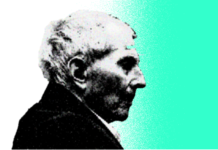Katherine Mader spent two decades as a judge in Los Angeles Criminal Court, before retiring early in 2020. Before that she was the LAPD’s first Inspector General, prosecuted two murder-for-hire trials and served as a defense attorney who convinced a jury to spare the life of the Hillside Strangler. In August of this year, Judge Mader published Inside the Robe: A Judge’s Candid Tale of Criminal Justice in America, which best selling author Michael Connelly called: “a perfect book: engrossing and telling at the same time.” The Judge has granted Crime Story permission to excerpt the entirety of her book over the coming months. You can find previous installments of Inside the Robe here. This is Part 12.
January 14
Judging is a wonderful profession in which to age gracefully. I feel comfortable being one of the oldest judges in the building. As a deputy district attorney, I was becoming a dinosaur, watching go getters in their twenties jockeying for cases and promotions. Popping up all night jotting down notes for the next day’s jury trial became wearying.
There is less of a stigma toward old judges than toward old attorneys. One white-haired, eightyish attorney is frequently gossiped about. “Harry is really losing his step. Have you noticed?” Only rarely will a judge take steps to notify any oversight agency that an attorney is not clear-headed enough to represent clients. I have also faced the dilemma of watching older attorneys struggle to properly represent a client. So long as I wasn’t witnessing a miscarriage of justice, I stayed silent. Elderly attorneys don’t have a corner on the incompetence market. Some are lawyering virtuosos. I have seen inept young lawyers, too.
I worry about losing it, myself. My father ultimately died from dementia, and whenever I have to search for a word, I worry that dementia is also in my genes. My mother attributed my father’s dementia to radiation damage suffered as a soldier after picking through the rubble of Hiroshima looking for souvenirs. As soon as my dad arrived in America, he was drafted. A PhD chemist from the University of Vienna, the Army grabbed him to work with chemical weapons. I don’t consider myself as quick mentally today as I was years ago. Perhaps my slowdown in mental acuity is balanced by increased common sense and understanding of life. I hope so.
The pace of judging is much less intense than that of a trial lawyer. When I was in my thirties, I was in trial for two full years as one of the defense attorneys in the Hillside Strangler trial, then the longest trial in Los Angeles County history. It occupied my focus twenty-four hours a day. I’m sure I bored all of my friends and family talking about the trial obsessively. Being in trial for two years, however, is a sport for younger lawyers.
Today, the prosecution filed a motion to disqualify a fellow judge on my floor from hearing a murder trial. Each side, prosecution and defense, is allowed only one opportunity to challenge a court where they’ve been assigned for trial. Once the prosecutor filed his disqualification, the trial was moved to a different judge. But the defense attorney didn’t want to be assigned to the second judge, so he disqualified that judge. The trial went to a third judge where it found a home, as each side had used its sole opportunity to disqualify a judge.
There are many reasons why either side may choose to try a case in front of a different judge. The defense might claim, “Judge Sosa was so rude to me the last time I came to his court. I’m not going there again.” Or, “Judge Green sent my client to prison on a case where he deserved probation. He is a tough sentencer. Since I’m going to lose this trial, I’d better get myself into a more lenient court.” A prosecutor may have other concerns. “Judge Kinney is always in a rush. He makes me have witnesses ready to go from 8:30 to 4:30 every day. It’s hard to make sure there are no gaps. I can’t deal with the stress. Especially since this is a gang case, and it’s going to be hard to get witnesses to come to court.” Or, “Judge Blake is a bleeding heart. I need someone more likely to send this guy away for a long time.”
Some attorneys attempt to game the system. They may gamble by disqualifying the judge to whom they’re assigned and hope they get sent to their preferred judge. There are endless reasons why either side may want to disqualify a judge. As my friend, a career public defender, once told me when I first became a judge: “If you are nice but stupid, attorneys will go to you. If you are mean, but smart, attorneys will go to you. But if you are not nice and not smart, attorneys will never go to you.”
January 15
Today’s Los Angeles Times lead story quotes LAPD Chief of Police Charlie Beck as asking the District Attorney’s Office to file murder charges against a police officer who shot and killed a homeless man in Venice while on duty. The article detailed how hard it is to convict a police officer for an on-duty shooting. It brought me back to the prosecution I conducted of an LAPD officer who shot and killed a tow-truck driver in the early 1990s. At that time, I was in a special division of the DA’s Office that prosecuted police officers.
This was a controversial DA unit because most prosecutors consider themselves closely aligned with law enforcement and do not want to prosecute police officers for excessive on-duty force. The prosecutors in the unit are even sometimes hassled by other prosecutors. I used to hear: “Why would you want to be in that unit? You need to work with police officers. Officers will know that you helped convict one of their brother or sister officers.”
That argument never registered with me. Having a renegade spirit, and feeling I could either defend or prosecute, made such concerns irrelevant. If I was ostracized as a prosecutor, I could always return to practicing criminal defense. Luckily, several other prosecutors in the same unit had attitudes similar to my own.
Police officers’ unions can put out the word that a prosecutor who files a criminal case against a police officer for an on-duty force incident cannot be trusted. This could cause future problems for a prosecutor who might want to become a judge someday. Attorneysneed police union support to get appointed to the bench. I have a friend who spent several years as a commissioner (junior judge) and wanted to be appointed as a superior court judge. The governor wouldn’t appoint him to a judgeship unless police unions wrote letters of support. That was unlikely because my friend prosecuted two police officers for separate on-duty use of force incidents. After many efforts and “make nice” meetings, my friend finally got two union recommendations and has been a judge for over a decade. The most difficult part in prosecuting a police officer for an on duty
incident is finding a judge who would impartially try the case. As a judge, I can understand why judges don’t want to preside over the criminal trial of a police officer. They may think, “If the prosecution convicts a police officer for an on-duty force incident, I must sentence the officer. What if the officer is convicted of a form of homicide? I’ll be under public pressure to send the officer to prison. If I do that, prosecutors and police officers will be forever suspicious of me. And what if the union supports a candidate against me in the next judicial election? I could go bankrupt trying to hold onto my seat.”
In our trial, the first jury deadlocked between two degrees of homicide: hung between second-degree murder and manslaughter, a stunning verdict. All twelve jurors voted that the act of shooting the tow truck driver was a criminal act. After the hung jury, our office decided to try the case again.
The second trial was held before the same judge. He changed several key rulings, all helping the officer’s defense. He even allowed before the jury a prior incident in which the tow truck driver set afire a Humane Society truck and burned a dozen dogs alive. The dead victim was not an appealing man, but we didn’t anticipate that the dog incident from years earlier would come before the jury. We didn’t even screen the jury for dog lovers.
We ended up again with a hung jury, and the judge dismissed the charges. The police officer was fired, an unsatisfactory result for shooting a slow-moving tow-truck driver, when the driver resisted having his truck impounded. The judge retired without having to sentence a police officer to custody.



